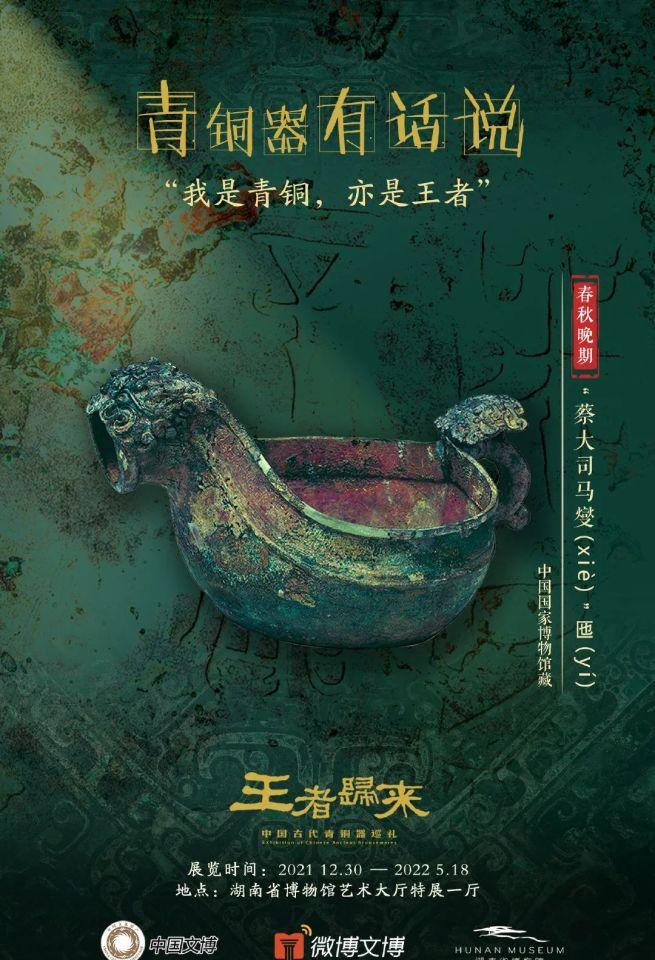Water vessels were an important ceremonial vessel during the Shang and Zhou Dynasties.
"The metaphysical is called the way, and the metaphysical is called the instrument." The ancient Chinese tradition of "hiding rituals in vessels" is to make bronze ware a symbol of etiquette in accordance with the ritual system, so as to establish status, show the relationship between respect and inferiority, and express piety and reverence.
The phenomenon of "hiding rituals in vessels" existed long before the creation of bronzes. The earliest excavated bronze ceremonial vessels can be traced back to the Xia Dynasty. Ceremonial vessels were most flourished during the Late Shang and Western Zhou Dynasties. During this period, the bronze smelting and casting industry became the representative of the social productive forces; this period was also the period when the ceremonial system was formed.
According to the ceremonial system, during the Shang and Zhou Dynasties, the nobles had to carry out strict washing ceremonies when worshipping gods and ancestors and feasting on guests, so bronze water vessels can be classified as ceremonial vessels.
Bronze water vessel can be roughly divided into four kinds of water carrier, water injector, water container and (yì) water vessel, the common plate, 匜 (yí), 盉 (hé), cup, jian, basin and so on.
What exquisite bronze water vessels were exhibited in the exhibition "The Return of the King - Ancient Chinese Bronze Vessel Tour" jointly brought by hunan provincial museum and Hunan Jingshi?
Sima Xie of Cai Da

Today's keynote speaker, it's finally my turn! My name is yí, and it's a water injector. My shape is like a scoop, which is combined with a plate, and the water is poured with a turn to take on the plate.
Ma Yonglu
Friends, I am 盉 (hé), which appeared as early as the Neolithic Hemudu and Liangzhu cultural sites. Our family and the zak can be substituted for each other, and we will also combine with the plate to form toiletries.
Turtle pattern plate
I am a pan, a popular water carrier in the Shang to the Warring States period, people will use me to take the water poured out of the pot when washing their hands, so I am also called a tray.
My insole is decorated with a turtle pattern in the center, and the inner wall is surrounded by three fish patterns. The fish pattern is depicted from a bird's-eye perspective, and because of the symmetrical composition, the whole fish is unfolded head-on, taking on a flounder form, which is abstract and has a strong sense of abstraction.
Copper book with cockroach pattern
Friends, my name is Jian. Before the common use of copper mirrors, the ancients often used us to take pictures, so later the bronze mirrors were also called "Jian". In addition, people use us to bathe.
Relief-shaped deformed cockroach pattern with ear bath
I am a type of toiletry called a bath. In ancient times, before worshipping ancestors, we had to bathe and purify ourselves to show piety, and in the bathing rituals of the pre-Qin, we always had a role to play. During the Spring and Autumn Warring States period, the Chu state was located in a subtropical climate zone, with abundant rain and a hot and humid summer climate, so the Chu people were more diligent in bathing.
Visiting tips
Exhibition date: December 30, 2021 - May 18, 2022
Exhibition Address: Hunan Provincial Museum Special Exhibition Hall I
Full-price ticket: 50 yuan / person
Preferential ticket: 25 yuan / person (full-time undergraduate and below students, 60 years old - 65 years old, low-income households with valid documents to enjoy preferential prices)
Free tickets: Children under the age of 14, the elderly over 65 years old, the disabled, active military personnel, retired military cadres can visit for free with valid documents
How to buy tickets:
1. Pay attention to the WeChat public account of Hunan Provincial Museum, click "Visiting Service" to reserve tickets
2. Log in to the official website of Hunan Provincial Museum and click "Visit" to reserve tickets online
(If you have a history of living in another province within 14 days, please provide a negative nucleic acid test certificate within 48 hours.) )
Opening Hours:
Every Tuesday to Sunday from 9:00 to 17:00 (last admission at 16:00)
Closed on Mondays and postponed on statutory holidays